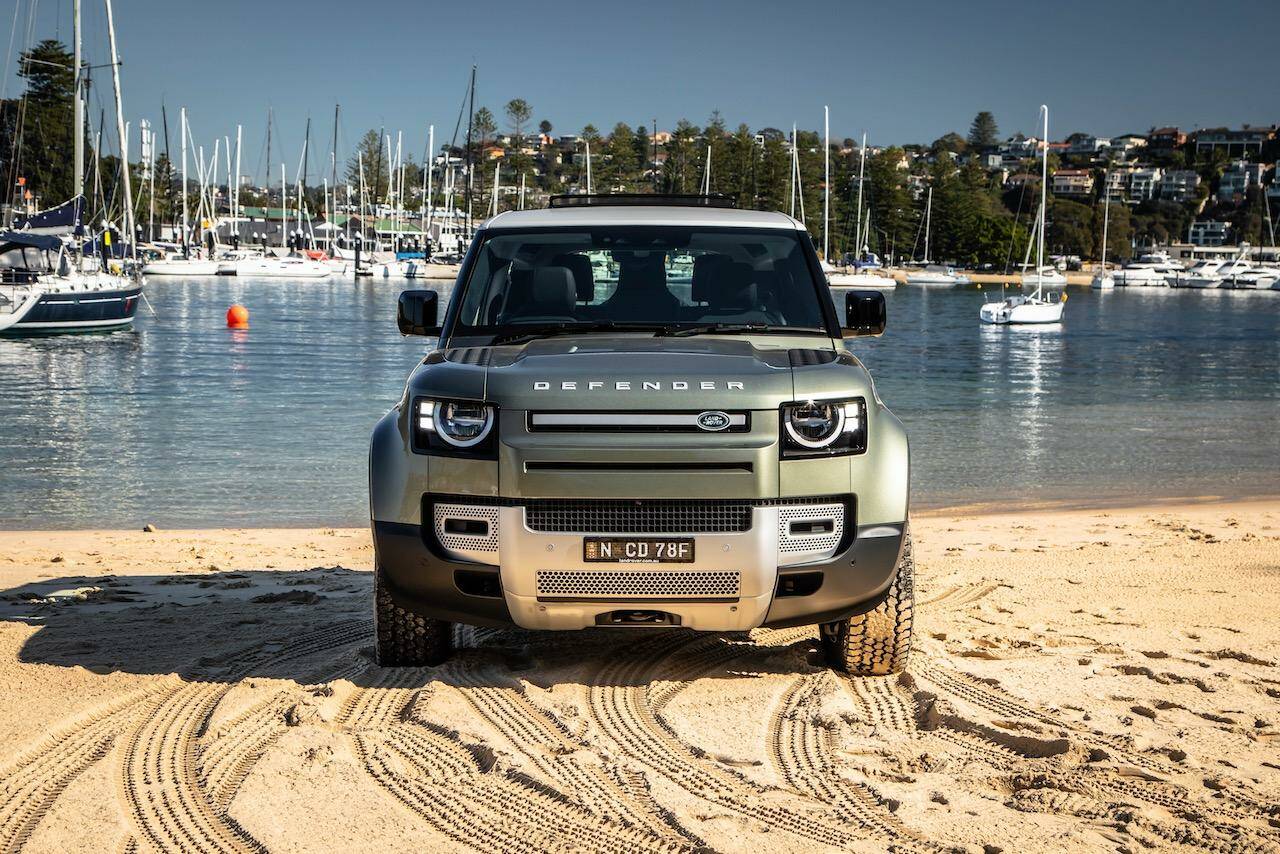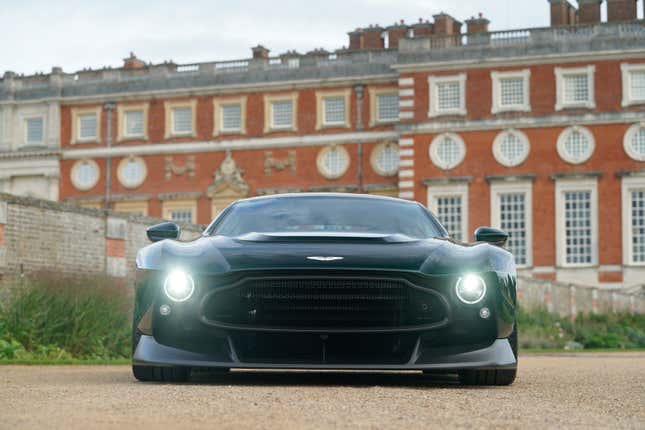On Our Way Home: Chapter Two


Anthony Zych
Cars whizzed along each of the four lanes connecting the suburbs to town, two moving in each direction. Three inches of snow from a week or so earlier had melted, and the ground had mostly dried. Up ahead, an old, oversized Chevy sat crooked on the shoulder. The tip of its back left corner stuck out into the right lane. A small figure in a flappy brown overcoat hunched over the open trunk. I could see both of his arms trembling their way toward getting whatever it was he was trying to remove.
I noticed the front end of the Chevy sinking into the gravel berm. The car had a flat tire. The man standing at the rear end of the vehicle was too old to be changing it by himself. A sigh started deep in my lungs and blew past my lips. I pulled behind the Chevy with my flashers on so that other cars would move to the left lane or at least not plow into the protruding corner of a chrome bumper attached to the kind of sharp-angled steel body the folks in Detroit hadn’t made in decades.
I checked the mirrors. Another car sped by, sustained horn blast letting both of us know the driver didn’t appreciate the impediment along the path to wherever he was going. Coast now clear, I got out and headed for the old man. He continued to fumble around inside the trunk. The lid was opened wide, looking like the unhinged mouth of a hippo.
“Having a little trouble?” I said.
“Having a lot of trouble,” the old man said without turning around.
“Flat tire?”
“She blew out on me. I have a spare. I just need to get her out of here and on there.”
“Do you have triple-A or anything like that? They’ll come out here and take care of you.”
The old man’s arms stopped moving. He steadied himself on the opening of the trunk with his right hand and turned around. He had deep grooves running down his cheeks, one on each side. Flaps of skin hung from his jaw, swollen rivers of dried wax from a squat candle that someone had forgotten to blow out before going to bed. His skull carried glasses with wide black frames. Gray eyes studied me through the haze of thick lenses. The brim of a charcoal fedora cast shadows over a nose that had one curly white hair spindling from its tip.
“Why do I need any of that when I have you?”
“I’m sorry,” I told him. “I’m late. For court. I have a trial.”
“What, did you get in trouble?”
I shook my head, slight grin stretching against a face that tried to resist it.
“No. I’m a lawyer.”
He turned to look at my Subaru. Blew air through his nose. The wind caught a droplet of snot and threw it back against his overcoat.
“Not much of a car for a lawyer,” he said.
I didn’t have the time or desire for banter, even though the old man was holding his own nicely. I started back toward the car.
“Was it something I said?” he asked.
“I’m getting my phone.”
“You have a phone in your automobile?”
I turned back toward the old man, opening my mouth before deciding to just grab the phone and get this over with. I plucked it from the passenger seat and returned, scrolling through my contacts for Lou Rizzoli.
“That thing-a-ma-jig is a telephone?”
“Yes,” I said without looking up at him. His confusion sparked my curiosity, but the goal at this point was to bring the interaction to an end and get to court. I could already feel the sweat collecting in armpits not lined with a moisture-wicking T-shirt.
I found Lou’s name and pressed my thumb onto his number. I held the phone against my ear.
“I guess it is a telephone,” the old man said as I waited. I grinned as politely as I could.
“Lou,” I said when he answered. “I’m out here on Route 32, about a half mile from the Main Street exit. . . . There’s a man with a flat tire. Can you have your cousin come out and change it for him? He can bill me. . . . It’s an old Chevy. Light blue. . . . The model doesn’t matter. It’s the only old light blue Chevy on any stretch of Route 32 today, I can promise you that. . . . OK, thanks.”
I ended the call and wrapped my fingers around the phone. Cars continued to zip past us every few seconds. Nearly all of them had moved to the left lane. I worried that it would continue after I drove away.
“You should put your hazard lights on,” I said to the man.
“It’s a 1977 Impala.”
“Excuse me?”
“The car. It’s a Chevy Impala. 1977. Lou, that man you called, he wanted to know. You could have just asked me.”
“His cousin’s coming,” I said. “He’ll find you. But you need to get inside the car and wait. You should put your hazard lights on, so the other cars will see you here. Do you need me to help you find them?”
“I was hoping you’d help me change my tire.”
“I’m sorry. I can’t do that. Someone is coming.”
“You’re already here.”
“I know. But I really have to go.”
“Can’t you wait with us until he gets here? Now that you mention those other cars, it would be nice to have yours back there. If someone hits it, maybe you can get something nicer with the insurance money.”
A short burst of laughter escaped my mouth, even though I could otherwise feel my mood turning more sour as I felt the precious minutes and seconds ticking away.
“I’m sorry, but I can’t. Do you need me to help you turn on your hazard lights?”
“I know where the button for my flashers is.”
“OK then,” I said, waiting for the man to return to the car. I went to the trunk and began to close it for him, hopeful he would get the hint.
“You need to push it down good,” he said. “It doesn’t want to latch.”
I put my left palm on the lid and gave it a firm shove. It snapped into place fairly easily. The old man’s bushy white eyebrows raised and the corners of his mouth curled down.
“You’re stronger than you look,” he said.
I laughed again, and I kept waiting for him to go back to the Chevy and climb inside, or at least try to.
“Do you need help getting in your car?” I said.
“I need help changing my tire.”
“He’ll be here soon. I promise. I have to go now. I wish I could stay.”
He looked at me as I said it.
“You don’t mean that.”
“Excuse me?”
“You said you wish you could stay,” he said. “You don’t mean it. Why would you say something you don’t mean?”
“Really, sir, I have to go. I’ve tried to help. I’ve done everything I can. I just have to go.”
“You have that telephone, you know.”
“Excuse me?”
“That telephone. You called the man to tell him to have his cousin come fix the tire. You could call whoever you’re supposed to go see, the judge I suppose, and tell him you’re going to be a little late.”
I lifted my right hand toward my face and pondered the phone.
“Yeah, I could. But I don’t want to. I want to be on time.”
“He’d probably understand. You’re being a good Samaritan.”
“Sir, I am. I’m paying for someone to come out here and fix your tire.”
“But you’re not staying until he gets here.”
At this rate, I thought, he’ll be here before I leave.
“Like I said, I’m sorry. That part I definitely mean. You need to get in the car, put the flashers on, and wait.” I turned away from him and went back toward my car.
“Do you want to see her?”
“Her who?” I said without stopping.
“My wife. She’s in the car. She’ll be upset that she didn’t get a chance to thank you for not changing our tire.”
I laughed again.
“Tell her I’m sorry. And turn on those flashers. The truck will be here before you know it.”
“I wish you would say hello to her. She doesn’t get to see many people.”
“Please tell her hello from me. And tell her I said Merry Christmas. Where are you heading, anyway?”
He smiled at me for the first time, flashing a hint of dentures that were carried just a little too loosely in his mouth.
“We’re on our way home,” he said.
I got inside the Subaru and watched the old man shuffle back to the Chevy. Once he finally got inside—it crossed my mind that he was intentionally dragging his feet to annoy me—I turned on the engine, waited for an opening in the flow of traffic, and pulled away. I turned off my own flashers once clear of the Chevy. I could see in the rearview mirror two heads, sticking up barely above the dashboard. I noticed the outline of the old man’s fedora.
I pressed my foot onto the accelerator, glided onto an exit ramp, and began making my way through town. I drove as fast as I could under the circumstances, which included just enough other cars to require the kind of zigging and zagging I didn’t want to do, not with the police station adjacent to the courthouse. I found a parking spot on the street, grabbed my briefcase from the back seat, scooped up my phone—my telephone—and hustled toward the main doors, once again forgetting to drop a few quarters into the parking meter.
I would have jogged and possibly even run, if I’d known the inevitable perspiration would have been sucked away from my softly jiggling upper body by the magic of modern sportswear technology. I opted for modified race-walking, the kind of aggressively brisk movement that possibly cries out “asshole” to anyone in the immediate vicinity who is moving at a more socially acceptable pace. I realized a bit too late that one of the people who seemed to react to me that way was one of the jurors in my trial. I cringed when I noticed I’d potentially pissed off someone who would be deciding Sandy Matherson’s case later that day.
I wondered why that person was moving so slowly. If I was late, he was late, too. Why wasn’t he in a hurry, like me?
I pulled my phone out and pressed the button to check the clock. I turned it off and on again, to confirm the time it was showing. I tried to do the math in my head. I’d wasted at least ten minutes on the side of the road with the old man. It didn’t add up.
I should have been late. Somehow, I wasn’t.
(On Our Way Home continues on Saturday, November 26, with Chapter Three. It’s being posted free of charge, with all chapters here. If you feel like paying for it, buy a copy of Playmakers instead. Do it from today through December 11, and get a free, personalized bookplate.)




